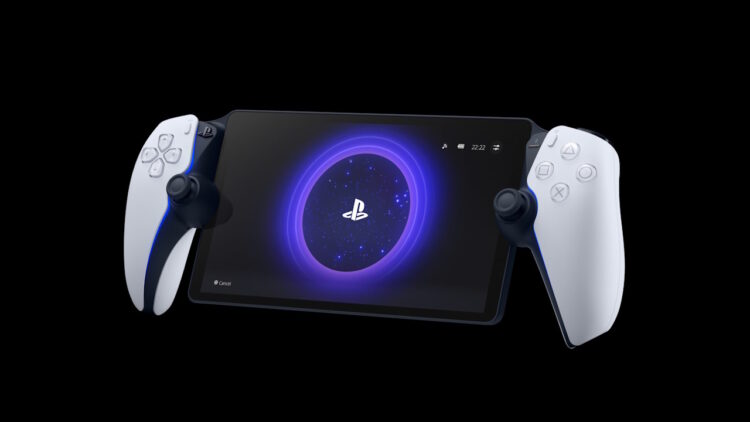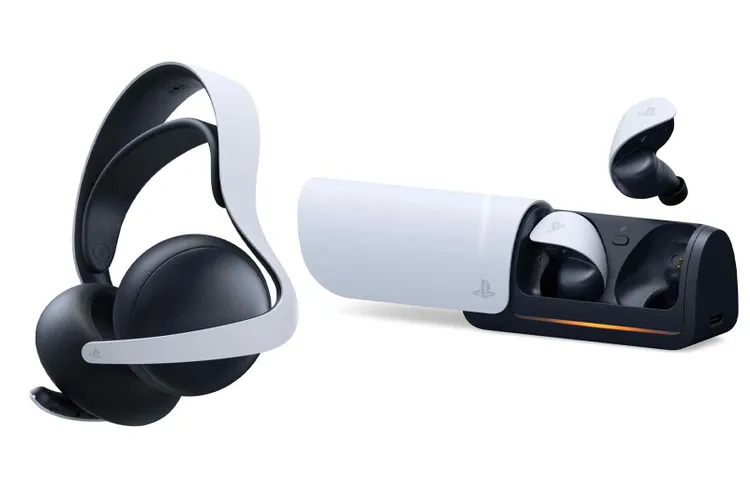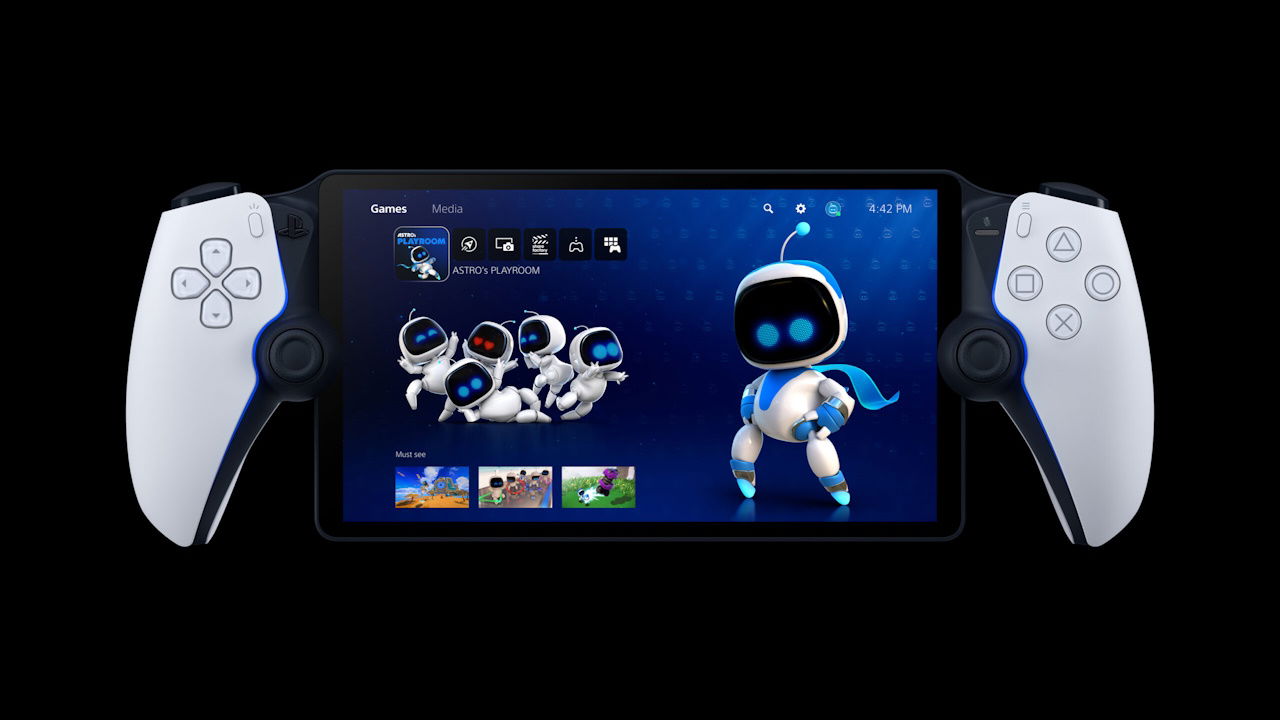The PlayStation Project Q, now known as the PlayStation Portal, is a portable device allowing gamers to stream PlayStation 5 games to that device. It’s been several months from the initial reveal of the PlayStation streaming device, and likely a few more months away from it being released.
But do we need it? Is there a place for it in a world with so many other devices that can do what it does? What’s PlayStation’s endgame with the device, and is it for you? I’m not even sure PlayStation knows, but I know for sure that I don’t, and chances are, you’re in the same position.
Do we need another PS5 remote-play device?
You may already know this, but let’s repeat it to hammer home the point. The only thing the PlayStation Portal can do is stream PlayStation 5 games so that you don’t need to be in front of your PlayStation 5. This is a $200 dollar streaming device and nothing more. It’s a great device for people whose PS5 is connected to a TV that other people are using. Or when you want to play games in another location, like in your backyard or even on the go (assuming you have access to your home network). On paper, it sounds great, and the asking price isn’t as bad as I thought it would be. PlayStation must be undercutting themselves to get this out the door.
However, since it is only a streaming device, it’s a question of if it is actually needed. I say this as there are already scores of devices out there, including mobile phones with controller enclosures, Steam Deck (with some modifications), Logitech G Cloud, and a few others that can also do this. You get my point here. It just feels that PlayStation is solving a problem that doesn’t actually exist but instead wants to get its hands into the mix, but at the same, skipping out on some valuable features.
As we found out recently, the PlayStation Portal doesn’t feature Bluetooth, meaning that you can’t use existing Bluetooth devices. Instead, the company wants you to go out and pay for new audio devices using a new technology called “PlayStation Link,” the Pulse Explore Earbuds ($200), and the Pulse Elite Headset ($150). The latter looks exactly like the PlayStation 5 Pulse 3D headset. I’m sorry, but if PlayStation expects people to play for the PlayStation Portal at $200 and then another $150 to $200 for devices to allow us to enjoy audio, that sounds like a terrible deal.
That’s not to knock PlayStation Link, as it actually sounds pretty interesting, as it’s basically a go-between for technology. In other words, you can use PlayStation Link to connect to Bluetooth devices and allow multi-device connections. It will also, according to PlayStation, provide a lower latency compared to Bluetooth, and that’s something I can get on board with. However, the way PlayStation is handling this is wrong.
We still don’t know about the battery life
PlayStation still refuses to tell us about the battery size and life of the PlayStation Portal, which to me, is a bad sign. Does anyone remember when the PlayStation DualSense Edge was announced, and everyone kept asking about the battery life, to which PlayStation acted like it wasn’t a big deal?
Then we finally got wind that the controller would only have about 5 to 10 hours of battery life, which was less than the already battery life of the standard DualSense controller, which is around 10 to 12 hours… with a brand-new controller. DualSense controllers that have been around the block a few times can barely get to 10 hours, and that’s my fear with the PlayStation Portal. It’s not like you can go, “Oh, I’ll just need a new DualSense controller.” and once the battery starts to go downhill, we could see a portal device become not-so-portable.
We also don’t know about the processor that this thing will use. But, Keith…. why do we care about the processor? This doesn’t play games locally. You’re correct; however, the processor is key for several reasons. If there’s not a processor that is designed for low power consumption, you’re going to see less battery life. At the same time, if the processor is weak, you’re also going to see latency issues and possible frame rate drops since the processor still needs to power the device and handle the data that’s being streamed to the PlayStation Portal.
Lack of Hall Effect joysticks
Unless I’ve missed this, the PlayStation Portal will lack Hall Effect joysticks, and that’s a huge concern. It’s no secret that the DualSense controllers have been known to exhibit “Joystick Drift.” The phenomenon where your controller suddenly has a mind of its own and moves your onscreen character without any input from you. This has affected Nintendo, Xbox, and PlayStation controllers, and I can’t see myself paying $200 for a device that might… or should I say, exhibit this issue down the road.
I’ve owned a pair of DualSense controllers that caught the Joystick Drift bug within a few weeks of owning them. This includes the controller that shipped with my PS5, which didn’t even last a few days before I had to contact Sony, who told me they couldn’t do anything for me, requiring me to purchase yet another controller. That definitely instilled confidence in PlayStation’s quality assurance.
It’s also why PlayStation, instead of putting some more R&D into the DualSense Edge, PlayStation opted instead to allow owners of the controller to swap out the analog sticks if Joystick Drift ever became a concern for them. For a price. But what about the PlayStation Portal? A device where the joysticks are housed between the split DualSense controller and the screen. If it happens, and it will, this device will need to be sent back to PlayStation for repair… unless you get a warranty at wherever you purchase it from. A storm is brewing, and it’s going to be ugly, mark my words.
It does have one benefit for gamers
While I feel I’ve been overly pessimistic about the PlayStation Portal, for valid reasons, it does have one benefit: Haptic feedback and adaptive triggers. The features that come standard on the DualSense controller are something that no portal device on the market can provide. Various games support both features, and taking advantage of both will put the experience of playing on a PlayStation 5 in the palm of your hands. That’s something that no handheld device on the market can do, and that’s pretty cool.
What does the future of the PlayStation Portal hold?
I’m not going to be that person and say that the PlayStation Portal is going to fail. I’ve been around long enough to know that people will buy things, even if they don’t deliver or if people actually need them. There’s a reason why PlayStation wanted to create this device, and I’m willing to bet that it has something up its sleeves to make the device appealing.
While I did mention that there are already devices that do what the PlayStation Portal does, they don’t offer the full experience. While with the Portal, this is going to have PlayStation’s full backing. There are also people who just want a dedicated device that does nothing but stream games. If you don’t believe me, look at Logitech’s G Cloud, which is still selling well. I’m seeing more people picking it up due to its versatility of being able to stream Xbox Games, Steam Games, and, yes, even PlayStation games with a 3rd party app called PSPlay. The last point is critical, as the Portal will (that we know and without hacking) only be able to stream PlayStation 5 stuff. Heck, if I didn’t already have a Steam Deck and/or a ROG Ally, I’d have one as well.
I don’t want it to fail, just like I won’t tell anyone where to game. I feel that PlayStation could have put more effort into it. Also, I wouldn’t say I like that instead of incorporating Bluetooth, they are forcing you to buy new stuff to support PlayStation Link. That totally feels like something that Apple would do. I also think it’s a beautiful-looking device, but the fact that all it does is stream is frustrating.
Sure, I’ll be getting one, as we want to review this here at the site. So once we get a release date, be on the lookout for our review of the PlayStation Portal. The question for me is, will I be holding on to it after the review and impressions are done? Well, that’s going to depend if the experience is worth it.




